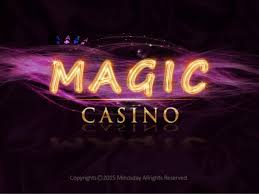
RemiPoker is a game of many different skills and of varying degrees of skill. Betting is an important part of the game. When you bet you are predicting a weak hand and your hand is only as strong as your betting decision. Smart betting can get you a long way in a game. When you get hot you can do this in a coin flip fashion, but better players know that the odds are against them and they have to drop the idea of raising to create a good impression. The other way to play poker is to play exactly like your opponents do. The checkraise is the term for this strategy.
To explain the concept of the checkraise, consider the following scenario. You have Ace King on the flop. The players in the early position are thinking about limping with these cards. If you raise you might scare them off. If you check you can steal the blinds. A checkraise can also happen when you have pocket eights and someone has raised. You can take the flop cheaply and build a pot.
They don’t always make it work, but when they do succeed they are generally ahead. The checkraise is an effective weapon for the player because it can be used for a variety of reasons. Sometimes you want to steal the blinds. Other times you want to hit a steal lof. And yet others intend to checkraise you back into the game.
To perform the checkraise, you want to be in late position. You make your raise with the intent of getting pressure on your opponents. If you have a premium hand you want to make your opponent pay to stay in the game.
ries from the button and blinds from the small blind are the best places to perform checkraising. Many players are not comfortable moving all-in with nothing. They risk their chips and lose a lot to play what they believe is a winning hand.
Check raise is a strategy, not an ordinary play. By moving all-in, you are announcing your strength. Many opponents will not like you and will play back. A successful bluff is simply moving all-in, and daring your opponents to call.
es probably will not make a hand. And, neither will they invest the time into learning how to play against you. For example, if you check, they will see your cards. You left your hand as anonymous as you could, and will have no problem getting paid off.
You want your opponents to think you are weak so they are likely to call you all-in. This is also a good opportunity to trap your opponent. If you think your opponent is eager to tournament, you can invite him to attack.
You can also use your table position to your advantage. If you are in a late position, you want to tournamentize. And, if you are in an early position, you don’t want to tournamentize. A lot of players try to tournamentize early, and once they get into the hand, they are too afraid to fold their hand.
Checkraising also has its uses. You may want to checkraise frequently in a hand, especially if you want to eliminate a player. One, you do not want your opponent within a few hands of you, and two, you want your competition so concerned with the concept of checkraising, that they will call you even when you are clearly beaten.
When you want to give your opponents a reason to fold a hand, using a check raise, is a way to do that. The check raise, when used at the right time, can get rid of opponents before they have a chance to get into a hand.